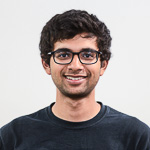There are horrible things going on in the world. ISIS has taken over large swaths of Iraq and is imposing a distorted version of Islam that violates basic human rights, such as freedom of expression and gender equality. The same can be said of the Boko Haram in Nigeria. Senseless attacks have been perpetrated on civilians in Paris and Australia, shocking the world. These attacks should be condemned; however, the ensuing media narrative that we have been fed has allowed the West to turn a blind eye to its own wrongdoings. Specifically, the Islamophobia that has been brewing in the West has made us ignore our own oppressive policies at home and abroad.
The hypocrisy of the “Je Suis Charlie” demonstrations in Europe is a prime example of the West’s selective memory. The demonstrations were in response to 12 people, including eight journalists, killed at Charlie Hebdo magazine by a radical Islamist group. A large congregation of NATO and Western allies rallied at a unity march consisting of 3.7 million civilians and over 40 world leaders. This “unity rally” was the largest demonstration in recent French history. The message was clear: Newspaper titles like “Paris urged to ‘come in numbers’ to defy Islamist terror” in the LA Times produce a clear enemy. French Prime Minister Manuel Valls declared “a war against terrorism, against jihadism, against radical Islam, against everything that is aimed at breaking fraternity, freedom, and solidarity.” The Israeli representative asserted, “Terrorism is terrorism. There are no two ways about it.” Such statements have made a clear demarcation between the saintly, freedom-fighting West, on the one hand, and a barbaric and violent Islamic world on the other.
However, such a characterization blinds the West to its own wrongdoings and abuse of human rights. Although the peace and unity rally celebrated freedom of the press, many of the European Union members attending the rally including France, the U.K. and Germany are exploiting the “right to be forgotten” ruling from the European Court of Justice to censor important news items and press releases. Going even further, France has censored freedom of expression by reserving the right to determine the Historical Truth through the Gayssot Law and by banning the burqa because it does not fit the French “way of life.” The very rights that these countries claim to support are violated by their own oppressive policies.
In addition to freedom of expression, the Western media and governments have selectively chosen to restrict definitions and depictions of “terrorism” to non-state actors. Take drone strikes. A recent Amnesty report has shown that drone strikes have resulted in 900 civilian casualty deaths. Meanwhile, “high level targets” killed by drone strikes account for about only 2 percent of the total deaths. And while these drone strikes have been conducted for around a decade, October 2013 was the first time Congress heard from the civilian victims. Rafiq ur Rehman describes how his mother was killed: “When the drone fired the first time, the whole ground shook and black smoke rose up. The air smelled poisonous. We ran, but several minutes later the drone fired again…Everything was dark and I couldn’t see anything. I heard a scream…Nobody has ever told me why my mother was targeted that day.”
From Rehman’s perspective, U.S. drones are a source of fear, apprehension and unpredictable and senseless violence. But why, then, did we not hear more of his story compared to Malala Yousafazi, who received a Nobel Peace Prize and a presidential honor for standing up to Islamist terrorists attacking Pakistani schools? Malala’s story fits into the dominant narrative where the West is a beacon of freedom and the Middle East is backwards. Meanwhile, Rehman’s experiences challenge this story by calling into question the moral certainty of U.S.-sanctioned violence in the Middle East. Indeed, by positioning the U.S. as a violent and unpredictable force, it begs the question whether our “War on Terror” is in itself a form of terror.
In addition to ignoring the state-sanctioned violence, the media stokes the flames of Islamophobia in the West by painting an intrinsic connection between Islam and terrorism. Whenever an Islamist executes an attack, the media describe him as an Islamic fundamentalist. The connection between religion and violence is clearly drawn. However, when any other religiously-affiliated group executes an act of similar violence, it is characterized only as terrorists. For example, the Irish Republican Army is no doubt a terrorist organization, having organized a laundry list of horrible attacks on Great Britain. However, it has never been labeled a “Catholic terror” even though its actions were motivated by extremist Catholicism. By drawing connections to Islam and not other religions, the media constructs a false picture of Islam as a fundamentally violent and flawed religion. Such beliefs have led to the persecution, discrimination and even violence against peaceful Muslim communities in the West.
It is easy and comfortable to think that the world is divided into “good guys” and “bad guys” and that we are fighting the good fight. But to criticize others without looking at one’s own moral standing is to be blind and ignorant. It is true that radical Islamists have been responsible for numerous terrorist attacks and human rights violations. But to concentrate solely on the extremist Islamic groups produces a moral tunnel vision in which we ignore how the West has violated freedom of speech, perpetrated violence abroad and validated state-sponsored racial oppression at home (i.e. police brutality against African Americans and Israeli discrimination against Palestinians). It is important to be consistent in our moral critique rather than choosing the convenient path.
Contact Neil Chaudhary at neilman ‘at’ stanford.edu.
